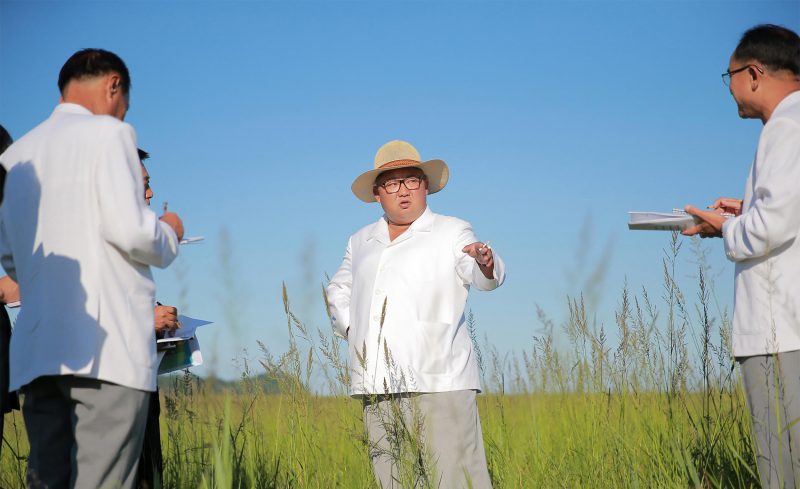North Korea must legalise markets to prevent rights abuses: UN
North Korea’s leadership has been frequently condemned by the international community for decades of prioritising the military and its nuclear weapons programme over adequately providing for its people (KCNA VIA KNS)
Seoul (AFP) – North Korea must create a legal framework for traders buying and selling basic necessities such as food and clothing to tackle rights violations in the country, the UN’s human rights body said Tuesday.
Campaign groups estimate around three-quarters of North Korea’s population depends on private market activity to survive since the collapse of the public distribution system — a state rations network — in the mid-1990s.
But despite being widespread, market activity remains a “legal grey area” in the North and a “source of further human rights violations”, said the UN’s Office of the High Commissioner for Human Rights (OHCHR).
“In the Democratic People’s Republic of Korea, people face both a failed public distribution system and an insecure informal sector where they are exposed to prosecution and corruption,” it said in a report, using the country’s official name.
The OHCHR document — based on interviews with 214 North Koreans — said Pyongyang had failed to legalise people’s efforts to find food and clothing outside the public distribution system, even though it was their only way to secure daily necessities.
“There is only one reason North Koreans engage in market activity and that is to feed themselves,” said Ju Chan-yang, a North Korean defector who sold foreign goods in black markets before fleeing in 2010.
In Geneva, the North’s diplomatic mission to the UN described the report as “pie in the sky”.
“Such reports are nothing more than fabrication… as they are always based on the so-called testimonies of ‘defectors’ who provide fabricated info to earn their living or are compelled under duress or enticement,” it said.
UN human rights officer Daniel Collinge said the lack of legal clarity for commercial activity meant North Koreans who engaged in market activity faced the risk of arrest and detention by authorities.
“The behaviour that such market activity involves, including making international telephone calls and travelling within and across state borders is also criminalised and therefore subject to extortion,” he said.
“This threat of arbitrary arrest and the harsh consequences that follow provide state officials with the powerful means to secure bribes from a vulnerable population,” he added.
Corruption was “endemic” in the North, he said, so that only those willing and able to pay bribes could strive towards an adequate standard of living.
– ‘Evil person’ –
Pyongyang should “undertake profound legal and institutional reforms”, the report said.
The North says it protects human rights and is improving people’s standards of living.
The isolated country, which is under several sets of sanctions over its nuclear weapon and ballistic missile programmes, has long struggled to feed itself and last year recorded its worst harvest in more than a decade.
Pyongyang has been frequently condemned by the international community for decades of prioritising the military and its nuclear weapons programme over adequately providing for its people — an imbalance some critics say the UN’s aid programme encourages.
Over the past year, North Korean leader Kim Jong Un has engaged in a flurry of diplomacy, including three summits with the South’s Moon Jae-in and two meetings with US President Donald Trump.
But the issue of human rights abuses in the North has largely been off the table at the summits, with Trump instead boasting of his special bond with Kim.
“We ought not to call people who run terrible human rights regimes our best friends and wonderful people,” former state department official Morton Halperin said Tuesday.
“What we should be saying is he’s somebody we think we can do business with to reduce the risk of a nuclear war,” he told reporters in Seoul, “but do it in a way that makes clear that we understand what an evil person he is”.
Ahead of his Hanoi summit with the North Korean leader in February, Trump repeatedly dangled the prospect of the North becoming an economic powerhouse if it gave up its arsenal, but the two failed to reach a deal.
Disclaimer: Validity of the above story is for 7 Days from original date of publishing. Source: AFP.


